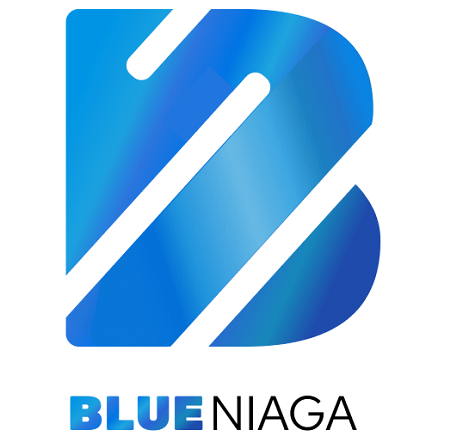When it comes to browsing the internet, cookies are like the secret ingredients that help websites remember your preferences, but did you know they also come with certain responsibilities? In Malaysia, cookie consent management has become an important topic for businesses and website owners, especially with the rise of online privacy awareness.
In this guide, we’re diving deep into what cookie consent management is all about, why it’s crucial for compliance with regulations, and how to effectively implement it on your website. You’ll learn the ins and outs of cookie laws in Malaysia, best practices for cookie management solutions, and even some handy tools to ensure you’re on the right path.
Understanding Cookies and Their Importance
Before delving into cookie consent management, let’s clarify what cookies actually are. Cookies are small data files stored on a user’s device that collect various types of information, such as:
These snippets of data enhance the user experience by personalizing website interactions and ensuring smoother navigation. However, with great power comes great responsibility; the misuse of this data can lead to serious privacy concerns.
Why Cookie Consent Management Matters
In Malaysia, the increasing emphasis on data protection, particularly with laws like the Personal Data Protection Act (PDPA), means businesses must take cookie consent management seriously. Here’s why:
1. Legal Compliance: Non-adherence to cookie consent regulations can lead to hefty fines.
2. Building Trust: Transparency about cookie usage fosters consumer trust and loyalty.
3. Better Data Management: Proper cookie management allows businesses to collect data responsibly and ethically.
Key Regulations Surrounding Cookies in Malaysia
Let’s break down some essential regulations regarding cookie usage in Malaysia:
Personal Data Protection Act (PDPA)
The PDPA is Malaysia’s primary data protection law, which regulates how personal data is processed. While it doesn’t specifically focus on cookies, it emphasizes that businesses must obtain consent before collecting any personal data, including that gathered via cookies. This makes it imperative for organizations to clearly inform users about their cookie practices.
Guidelines from the Malaysian Communications and Multimedia Commission (MCMC)
The MCMC has issued guidelines that align with the PDPA, requiring websites to:
Best Practices for Implementing Cookie Consent Management
Implementing cookie consent is not just about compliance; it’s about enhancing user experience. Here are some best practices:
Design an Informative Cookie Banner
Your cookie banner should be prominently displayed and easily understandable. Key elements to include:
Utilize a Cookie Policy Page
A detailed cookie policy can clarify how your website uses cookies. Consider the following for your cookie policy:
Employ Cookie Management Tools
There are numerous cookie management tools designed to simplify compliance with cookie laws:
Monitor User Consent
Once users opt-in or opt-out of cookies, it’s crucial to keep records of their preferences. This shows good practice and builds trust with your audience.
Common Challenges in Cookie Consent Management
Even with the best practices in place, businesses may still encounter challenges in cookie consent management:
Misunderstanding Legal Requirements
Many companies struggle with knowing exactly what constitutes personal data under the PDPA. It’s vital to consult legal advice or refer to authoritative sources when in doubt.
Balance Between User Experience and Compliance
Striking the right balance can be tricky. Overly obtrusive cookie notices can frustrate users, while too lenient approaches may lead to compliance issues. Finding a middle ground where both needs are met is essential.
Ensuring Global Compliance
If your business operates internationally, remember that cookie laws vary by country. Ensure you stay updated on different regulations, such as the General Data Protection Regulation (GDPR) in the EU.
Future Trends in Cookie Consent Management
As technology and regulations evolve, it’s valuable to keep an eye on anticipated changes in cookie consent management:
Increased Demand for Transparency
Users are becoming more proactive in understanding how their data is used, leading to more stringent demands for transparency in cookie practices. Websites may need to provide more detailed explanations and options than ever before.
Shift Towards Cookie Alternatives
With rising privacy concerns, some companies are exploring alternatives to third-party cookies. Privacy-enhancing technology and different tracking methodologies may shape the future landscape of web data collection.
Emphasis on User Education
Educating users about cookies and data privacy will lead to more informed choices, enhancing the user experience and fostering trust.
Engaging Users with Customizable Preferences
Offering customers the ability to customize cookie settings can lead to improved user satisfaction and higher engagement. Allow users to choose the types of cookies they are comfortable accepting and which ones they wish to decline.
Leveraging AI for Cookie Management
Artificial intelligence (AI) may play a critical role in personalized cookie management solutions, adapting cookie banners based on user behaviors and refining consent strategies.
Summarizing the Essentials
To navigate the world of cookie consent management in Malaysia, it’s essential to be well-versed in the relevant regulations and best practices. Businesses should strive to foster trust with clear communication and robust cookie practices, while users become increasingly aware of their rights regarding personal data.
Understanding cookies, implementing a transparent consent process, and staying updated on legal changes are fundamental for a successful online presence.
So whether you’re just starting or looking to refine your cookie management strategy, keeping these insights in mind will help you create a more transparent and engaging online experience for your users. After all, being conscious about cookies isn’t just about compliance—it’s about building stronger relationships with your audience!


